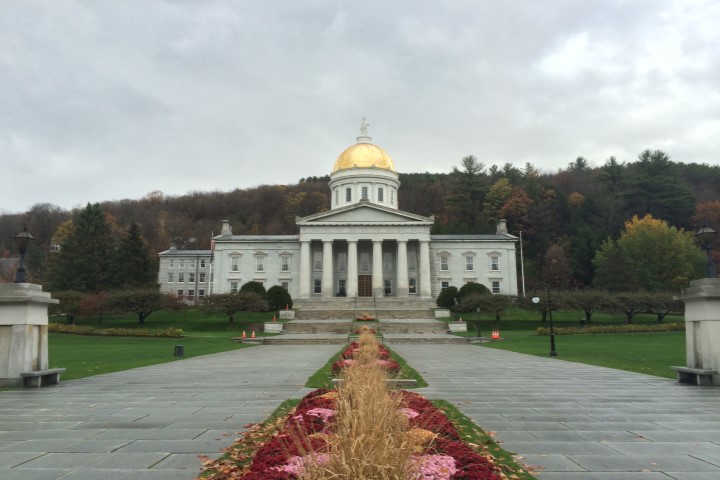Students in Vermont are signing up for a summer of civics – a new program designed to educate students about their shared civic heritage while connecting them with local government and historic sites.


Students in Vermont are signing up for a summer of civics – a new program designed to educate students about their shared civic heritage while connecting them with local government and historic sites.
The Good Citizen Challenge is sponsored by Seven Days, a Vermont newsweekly, and the Vermont Community Foundation.
“The self-guided Challenge encourages young Vermonters to explore historic sites, engage in conversations with neighbors and elected officials, develop media literacy skills and learn about the rights and duties of U.S. citizenship,” Seven Days reports.
“Geared toward kids ages 9 to 14, the Challenge is open to all Vermont K-12 students. Activities include visiting the Calvin Coolidge Homestead, attending a city council or selectboard meeting, reading a community newspaper and drawing a cartoon explaining how the three branches of government work.”
Students earn points for each activity with the goal of reaching 251 – the number of towns in the state. Students who meet the threshold and send in their scorecards receive a Good Citizen medal and T-shirt, as well as an invitation to a special reception at the Vermont Statehouse where elected officials from across the political spectrum will recognize the “Good Citizens,” according to the news site.
Seven Days deputy publisher Cathy Resmer said the Good Citizen Challenge is modeled after Vermont State Parks’ 10-year-old Venture Vermont Outdoor Challenge, which is aimed at motivating youngsters to take advantage of the state’s natural resources.
“My family loves Venture Vermont. It gives a little structure to our summer adventures, and inspires us to try new activities,” said Resmer, editor of Seven Days’ free monthly parenting magazine, Kids VT. “We hope the Good Citizen Challenge will do the same thing, but for civics.”
Vermont Gov. Phil Scott, Lt. Gov. David Zuckerman, and Secretary of State Jim Condos offered support for the program at a press conference announcing its launch in late May. Ethan Sonneborn, a 14-year-old Democrat candidate for governor, also applauded the effort.
Resmer told Seven Days the program is designed to focus on the democratic values that unite at a time of divisive politics. And with recent studies showing a majority of the public struggles with basic civics, it’s more important than ever.
“How can Americans participate in their democracy — or defend it — if they don’t understand the principles on which it rests?” asked Resmer. “As former Supreme Court Justice Sandra Day O’Connor said, ‘Civic knowledge can’t be handed down the gene pool. It has to be learned.’”
There is wisdom in this program as it has provided a low-cost means to help structure students’ summer vacation with a civic purpose. But it is more of an onramp toward civic education than an ending point. It is unlikely that these self-directed learnings and experiences will expose students to the most pressing questions of contemporary civic life: How do we live with our deepest differences in society of expanding pluralism or to the ideas that are the pillars of democracy? James Hunter and Ryan Olson warn, “Only the particularity of moral community can bind our natural feelings of empathy with the substance and direction of what we ought to do.” Civic knowledge without a communal basis in “oughtness” will prove inadequate to contemporary life.
Notwithstanding the challenges in engaging students in meaningful civic learning, efforts to generate interest in and enthusiasm for learning about government and our democratic institutions must ensure student engagement . Teachers interested in fermenting student interest in civics education can find information and ideas by looking at the UK’s The Jubilee Centre. The Jubilee Centre features teacher lesson plans for teaching students how to prepare for adulthood here.